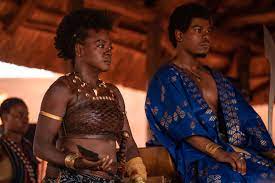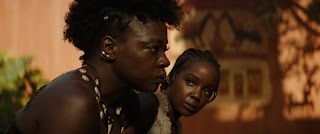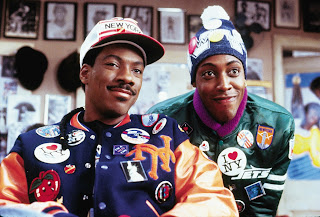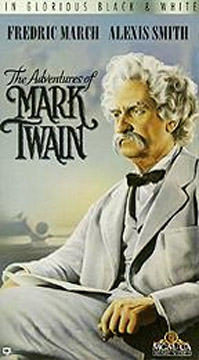DON'T WORRY DARLING
It is unfortunate that Don't Worry Darling arrived in movie theaters already surrounded by controversy and scandal. Director and costar Olivia Wilde traded accusations against actor Shia LaBeouf over whether he was fired from the film or that he left voluntarily. Don't Worry Darling's star, Florence Pugh, appears to be in a feud with Wilde as well. Their feud perhaps came to be due to how Wilde began an affair with LaBeouf's replacement, pop star Harry Styles, ten years her junior. The Wilde-Styles liaison broke up her long-term relationship with her fiancée of nine years Jason Sudeikis, father of her two children. That breakup in turn led to a surprising moment where Wilde was served with legal papers while on stage to discuss and promote Don't Worry Darling.
Now at last we have the film itself. While Don't Worry Darling creates an interesting premise, it is not until it reveals its shocking twist that it becomes a muddled mix of The Stepford Wives, The Village and The Matrix.
Alice (Pugh) and Jack (Styles) live a bucolic life in Victory, a planned community with a very 1950s manner. All the men go off to work at the mysterious Victory Company while all the women stay at home. The women clean house, care for kids and have martinis waiting for their men, who pleasure them with oral sex on the kitchen table.
The citizens of Victory are enthralled with Frank (Chris Pine), the mysterious cult-like leader of both Victory the business and Victory the city. However, Alice soon starts seeing strange things in her pristine world: eggs that are empty when cracked, the walls literally closing in on her, and her friend and neighbor Margaret (Kiki Layne). Margaret appears to go bonkers, insisting there is something wildly amiss here. Margaret eventually slits her throat on her roof, witnessed by a horrified Alice. Alice's BFF Bunny (Wilde) insists there is no there there, but can it be true?
More odd goings-on come to fruition: airplanes crashing that only Alice can see, Victory insisting that no one can go beyond a certain point, all the community members having the same types of origin stories and vague memories involving Busby Berkeley-type numbers. What can it all mean? Simply put: Alice is trapped in a world of Jack's creation, and now she much break free.
Don't Worry Darling might have worked if not for the twist, one that is both predictable and illogical. At the risk of providing spoilers, we learn that Alice and all the other women save Bunny are trapped by their husbands/male partners in a simulation. Here, the men live out their patriarchal fantasies while the women live unaware. It is only when they do become aware (as Margaret and Alice do) or come voluntarily (as Bunny does so that her dead children can be alive in this simulation) that things start going loopy.
As a side note, intentional or not, the "Bunny is living out her motherhood fantasies in an imaginary world" has some very unfortunate similarity to the whole of WandaVision. I think it would be near-impossible for Don't Worry Darling viewers to not think that this plot point is similar to WandaVision. I am sure that Katie Silberman's screenplay (from a story by Carey and Shane Van Dyke) did not intentionally copy WandaVision, and this reveal comes almost as a blank revelation from Wilde-as-actress, but even I thought Bunny was Wanda, and I never saw WandaVision.
One gets the sense that Don't Worry Darling wanted to say something about the evils of the patriarchy and the oppression of women (it should be noted that the "real" world has Jack as unemployed, generally scuzzy and deep into the online theology of Frank-as-leader). Also, it is curious that we do not see same-sex couples here: no lesbian taking her partner into being held prisoner or gay man feeling isolated from his potentially more successful partner.
I mention this because Don't Worry Darling does good in having a more multicultural community, though that does raise the question as to how African and Indian Americans can exist on an equal footing with their Anglo counterparts if this is a Levittown-type universe set in Eisenhower Era America. Even the Stepford Wives remake had a gay couple in it.
Even if one accepts the twist (though given the laughter that erupted at the screening I went to, that's a big if), the film keeps going long after the twist is revealed. As such, things get more and more muddled. In this world, when a man dies in the simulation, he stays dead.
What about when a woman does so? Margaret slit her through and fell off the roof, so she seemed not just merely dead but most sincerely dead. Is she actually dead? The town doctor Collins (Timothy Simons) suggests that she is not dead and later on puts Alice through electroshock therapy. Granted, we do not see Margaret after her fall, no doubt in part by the red-suited goons unleashed at the first sign of dissent. However, we pretty much forget about her, and the question as to who can live or die after we see them killed is never answered.
Many questions are never answered and some pop up as the film rolls around, making things odder. If Alice was abducted or held prisoner by Jack (and I figure there is some symbolism in that idea) why did her coworkers never appear to notice? Why was the Busby Berkeley-type musical number used to hypnotize the women? Could men be victims?
As a side note, that would make for a more interesting film. Moreover, the use of the name "Alice" strikes me as a bit too on-the-nose, a mythical figure wandering through her own Wonderland.
Leaving aside all the problems within the plot, we now go to the performances. Don't Worry Darling is held together by Florence Pugh. She is in another film altogether, where Alice's disintegrating world is frightening. Pugh gives her all as this woman who senses something is wrong but cannot quite put it together. Her face-off against the arrogant Frank is a performance of quiet but growing rage, where she builds up her courage and is the lone prophetess of truth, a Cassandra in this seemingly wonderful world.
Pine, though not on screen often, does well in his quiet yet ruthless guru. He comes across as a cult leader, who is aware of the malevolent power he holds over the community while presenting a vaguely caring exterior. Wilde was a bit too harsh as Bunny, the woman who is content in her glamourous world. To be fair, she is the only woman aware of what's going on, so I cut her some slack.
Now, as for Harry Styles. I enjoy referring to him as his generation's Gene Kelly, but behind that mockery is a serious point. Styles is a pop star, best known for his work in the One Direction boy band and now his solo career. Now someone in Styles' camp or Styles himself has decided he is an actor of depth. Don't Worry Darling won't convince anyone that he is either serious or a serious actor.
The laughter that also erupted when Styles' Jack breaks down when Alice is taken by the red-suited goons does not bode well for a future as a dramatic actor.
Kelly had had years of experience on the Broadway stage before entering film. He started in musicals before segwaying into more dramatic work. Frank Sinatra similarly started in secondary roles where his singing was instrumental. He too took small steps before going into straight dramas.
Now, we have people like Harry Styles, who think or have been told they can shift easily from selling out concerts with their pop music to acting in straightforward dramas. One needs an incredible amount of talent and skill to move from music to acting, and Styles does not have either. Throwing him into something as dramatic as Don't Worry Darling was a terrible mistake. His blankness cannot be masked by his pretty face. I can give a grudging respect that he tried.
My sense is though that Styles genuinely thinks the transition from Britain's Got Talent to the new Laurence Olivier is as smooth and easy as his quick cameo in Eternals. It is wrong to throw him in (or to throw himself in) to straight leading dramatic roles. He is simply not a good enough or strong enough actor to carry either a film or this character.
That he has a dance number is already bad enough. That we get shots of his feet and torso but few if any shots of him complete compounds how bad Harry Styles was. If you cannot showcase what he can do, why push him into showing what he cannot do, which is act?
To be fair, Don't Worry Darling does have a strong visual style (even if I found the constant spinning of the camera more grating than anything else). It does work hard to capture the 1950s aestetic, though the film drowns in the soundtrack. Did we really need two renditions of Sh-Boom (which brought up memories of, of all things, Clue)?
If not for Florence Pugh, Don't Worry Darling would be a total disaster. She saves the film from total shambles, but the film simply tries far too hard to be intelligent when it ends up coming across as goofy to laughable. Don't Worry Darling ends up silly as it is, and As It Was.
DECISION: D+
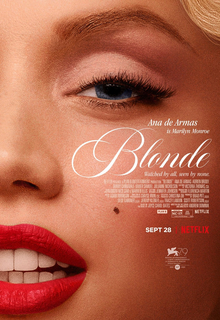










.jpg)



.jpg)
